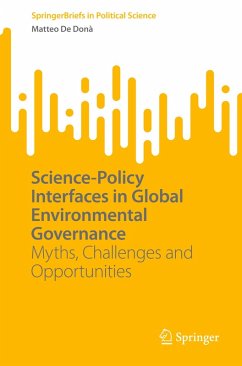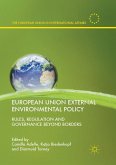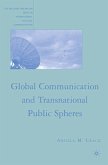This Brief discusses science-policy interfaces (SPIs) in global environmental governance. Broadly speaking, SPIs can be understood as institutional arrangements that aim to bridge science and policy within a specific issue-area with a view to facilitating the solution of relevant societal problems. Although the scholarly literature on SPIs has grown substantially over the last two decades, there are still several myths and misconceptions about such bodies: these are often reflected in the practice of science-policy bridging within international organizations such as the United Nations. Offering an accessible discussion of the promises and pitfalls of SPIs, the book deliberately targets a hybrid audience, reaching out to both academics and practitioners. By reconstructing relevant theoretical debates across different scholarly fields, such as International Relations and Science and Technology Studies, and by taking stock of key hands-on experiences, this Brief connects the theory and practice of global SPIs, reflecting on the role of critical social science research as far as the interplay between science and policy in international environmental governance is concerned. On the basis of a balanced analysis of the strengths and shortcomings of global SPIs, this volume intends to provide readers with a faithful picture of the current international science-policy landscape as well as with an informed opportunity to evaluate these institutional arrangements' potential for helping to address the global environmental challenges that the world is facing today.
Bitte wählen Sie Ihr Anliegen aus.
Rechnungen
Retourenschein anfordern
Bestellstatus
Storno









